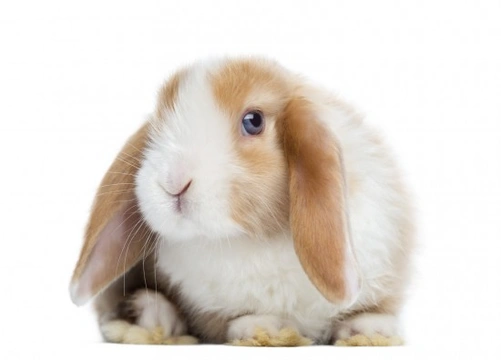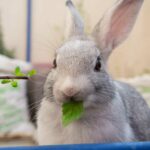Hello, I’m Arushi, and I’m excited to dive into a topic that every rabbit owner encounters: How often do rabbits poop?
If you’re a new rabbit parent or just curious about these furry friends, understanding their bathroom habits is crucial for their well-being.
In this article, I’ll walk you through everything you need to know about rabbit poop, in a simple and easy-to-understand way.
The Two Types of Rabbit Poop:
First things first, it’s essential to know that rabbits produce two types of poop, each with its own purpose:
- Hard Pellets: You’ve probably seen these tiny, round, and dry droppings scattered in your rabbit’s living space. These are the regular, everyday pellets that you’ll find in the litter box or around their habitat.
- Cecotropes: Less commonly known but equally important are cecotropes. These are soft, mucous-covered droppings that rabbits produce and often consume immediately. Cecotropes are packed with nutrients and help your bunny get the most out of their food.
How Often Do Rabbits Poop?
Now, let’s break down how frequently you can expect your rabbit to produce these types of poop:
- Hard Pellets: Rabbits tend to leave hard pellets quite often. You’ll typically find these hard droppings in their living area, and they might poop several times a day.
- Cecotropes: In contrast, cecotropes are not as frequent. Your bunny usually creates and consumes cecotropes once or twice a day. This is a crucial part of their digestion.
Factors That Affect Pooping Frequency

Several factors can influence how often your rabbit poops:
- Diet: A diet high in fiber, primarily from fresh hay, promotes regular and healthy pooping. Leafy greens and a limited amount of high-quality rabbit pellets are also essential components of their diet.
- Hydration: Keeping your rabbit hydrated with access to fresh water is crucial. Dehydration can disrupt their digestive system.
- Activity Level: Active rabbits often have healthier digestive systems. Encourage your bunny to exercise for proper gut motility.
- Stress: A stress-free environment is essential for your rabbit’s digestive health. Stress can impact their digestion, so make sure they feel safe and secure.
- Age: A rabbit’s age can also influence their pooping frequency. Young rabbits may have more active digestive systems compared to older ones.
FAQs
Q 1. What do healthy rabbit droppings look like?
Ans. Healthy rabbit droppings are typically round, dry, and firm. They should maintain a consistent size and shape.
Q 2. Is it normal for my rabbit to eat their own poop?
Ans. Yes, it’s completely normal for rabbits to eat cecotropes. This is a natural part of their digestive process, helping them extract extra nutrients.
Q 3. Why is my rabbit’s poop soft or runny?
Ans. Soft or runny poop can indicate gastrointestinal issues. If you notice a change in your rabbit’s droppings, consult a veterinarian.
Q 4. How can I encourage healthy pooping habits in my rabbit?
Ans. Providing a balanced diet, plenty of fresh hay, regular exercise, and a stress-free environment can help maintain healthy pooping habits.
Q 5. When should I be concerned about my rabbit’s poop frequency?
Ans. If you notice a sudden change in your rabbit’s pooping habits, such as a significant reduction or an increase in soft or runny droppings, it’s essential to consult a veterinarian for a check-up.
In conclusion, understanding your rabbit’s poop patterns is vital for their overall health and well-being.
By monitoring their poop habits and providing them with the right care and environment, you can ensure your furry friend remains happy and healthy.
If you have any concerns about your rabbit’s digestion, don’t hesitate to seek advice from a veterinarian who specializes in small animals. Your bunny will thank you for it with many more adorable hops and binkies!






